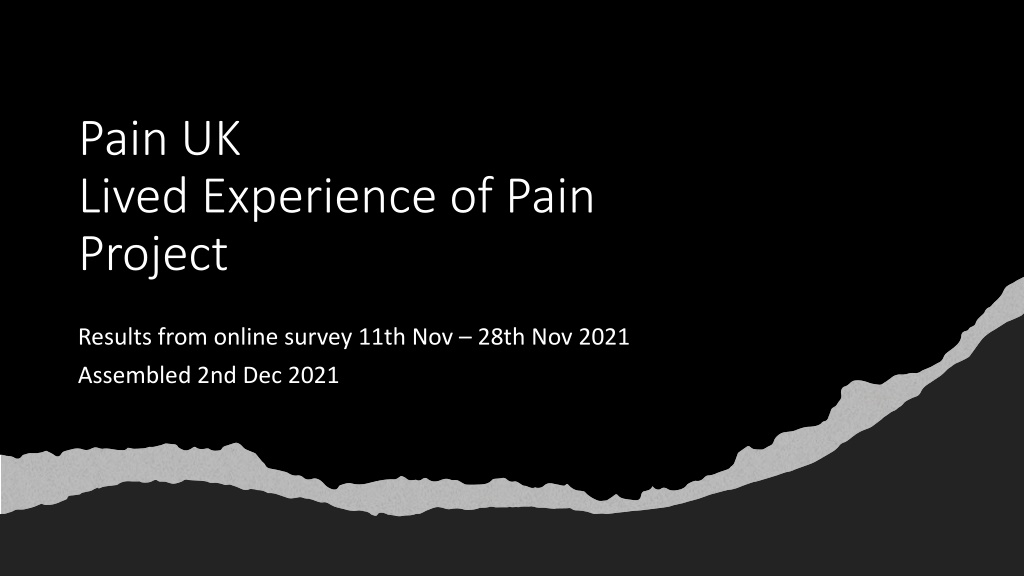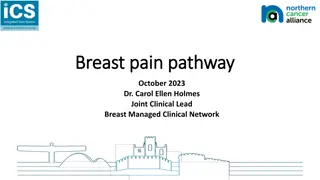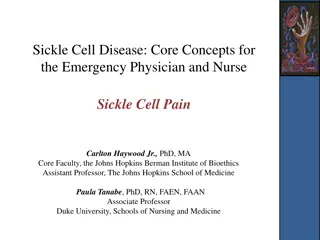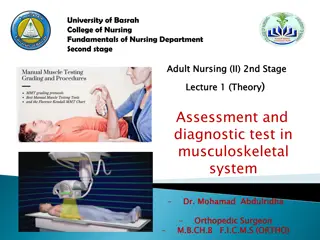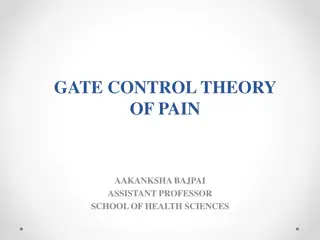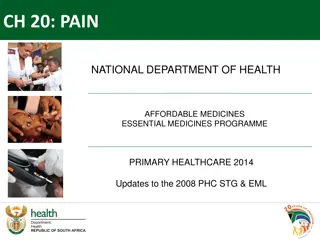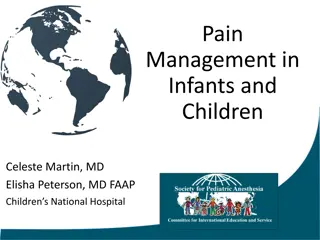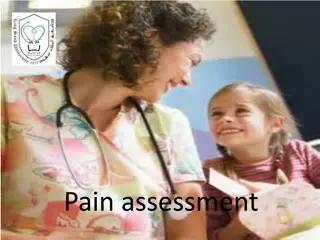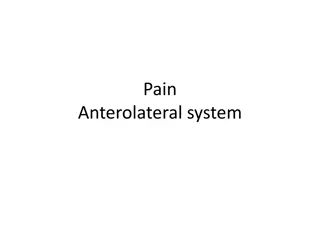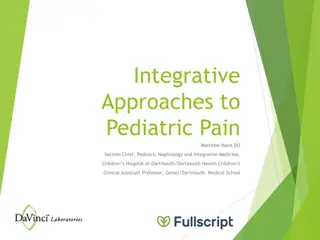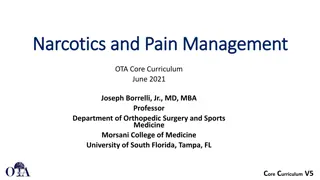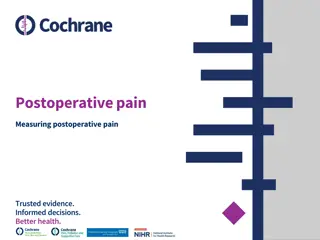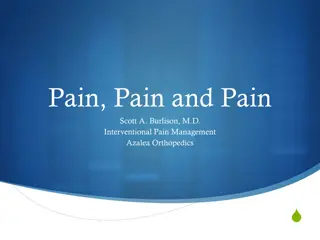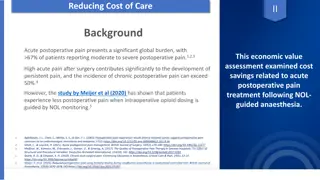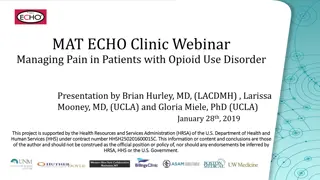UK Lived Experience of Pain Survey Insights
Analyzing data from a recent online survey conducted by Pain UK on the lived experience of pain in the UK. Insights include participant demographics, diagnosis statistics, employment status, and more, offering a comprehensive view of the impact of pain on individuals.
Download Presentation

Please find below an Image/Link to download the presentation.
The content on the website is provided AS IS for your information and personal use only. It may not be sold, licensed, or shared on other websites without obtaining consent from the author.If you encounter any issues during the download, it is possible that the publisher has removed the file from their server.
You are allowed to download the files provided on this website for personal or commercial use, subject to the condition that they are used lawfully. All files are the property of their respective owners.
The content on the website is provided AS IS for your information and personal use only. It may not be sold, licensed, or shared on other websites without obtaining consent from the author.
E N D
Presentation Transcript
Pain UK Lived Experience of Pain Project Results from online survey 11th Nov 28th Nov 2021 Assembled 2nd Dec 2021
Initial insights and data trends The survey was open for 16 days 11th 28th November 2021. The majority (619) of the responses came in on Thursday 25th Nov. Total responses 1,219 Completion rate 92% Typical time spent 4mins
79% of responses came from England, 13% from Scotland, 5% from Wales, 3% from Northern Ireland and 0.3% from The Isle of Man or Chanel Islands The vast majority were female (90%) and there were 4 participants that identified as trans or non-binary The majority of respondents were under 55 years of age, and 56% did not have a university degree Summary of participant demographics 52% were in employment, and 64% had a household income under 40,000 52% lived in a privately owned home The absolute majority identified as white British (88%). Other ethnicities represented were White Irish (2%), White/Asian mix (1%), Asian/Indian (1%), and more (30 people in total) 93% had received a diagnosis for their pain
1. Which UK country are you a resident of? Please do not answer the survey if you are not a resident of the UK. 2. What is your age?
3. What best describes your gender? Other (please state): Questioning my gender identity. 4. What is your current employment status?
Overall 5. What is the highest level of education you have completed? By country
6. Many people do not have a diagnosis for their pain, but if you do, please state your diagnosis. 93% have a diagnosis 22% do not have a diagnosis of which 16% leg pain 14% back pain 13% headaches 12% pelvic pain 11% joint pain of which 50% fibromyalgia 22% endometriosis 9% arthritis 7% migraine 5% osteoarthritis
7. Do you perceive yourself as having a disability? 8. What is your household income?
9. What type of accomodation do you live in? 10. What best describes your ethinicity?
Summary of results from the 10 questions
Overall 11. My mental health has deteriorated while living with pain. 260 comments By country By gender
Overall 12. I am missing out on my life because of my pain. 247 comments By country By gender
13. I Overall sometimes hide my pain to avoid negative judgement from others. 203 comments By country By gender
14. My pain affects my ability to perform at work because I do not receive the right support and modifications. Overall 306 comments By country By gender
15. A medical diagnosis is important to me because it helps people around me believe and understand that my pain is real. Overall 222 comments By country By gender
Overall 16. I wish I could communicate more effectively with others about my pain. 161 comments By country By gender
17. Accepting that pain is part of my life would bring me some relief from the constant struggle to find a cure. Overall 222 comments By country By gender
Overall 18. My pain management strategies improve my mental and social well-being. 197 comments By country By gender
Overall 19. Since living with pain, I am no longer the person I used to be. 189 comments By country By gender
Overall 20. The COVID- 19 pandemic has had a negative effect on my pain. 205 comments By country By gender
